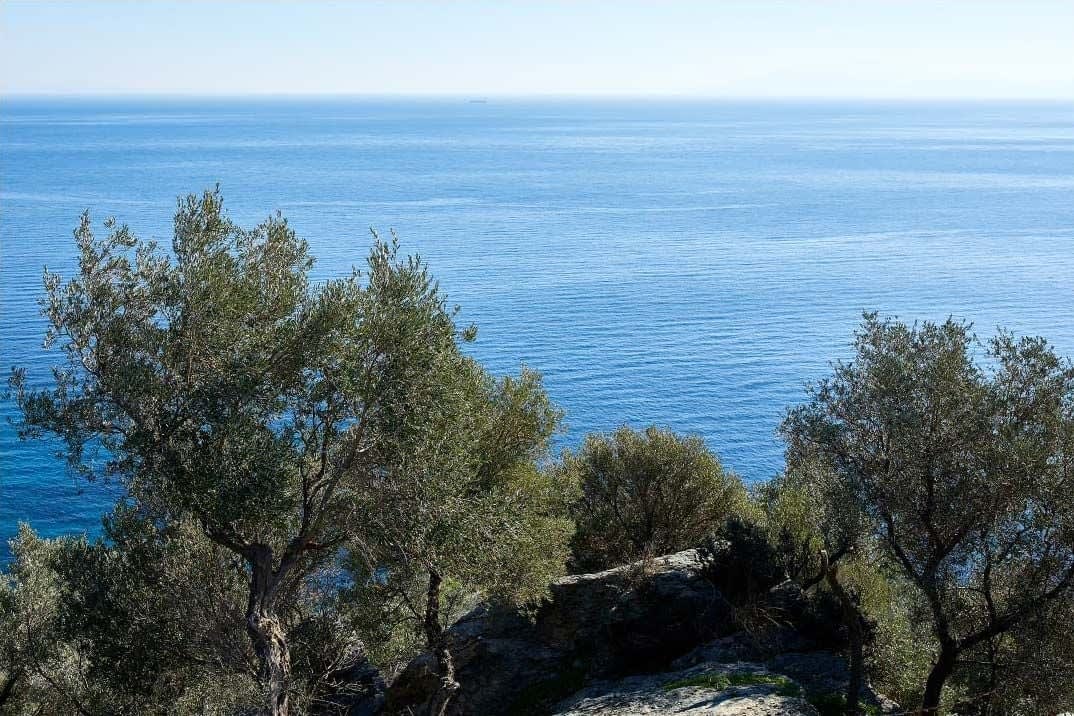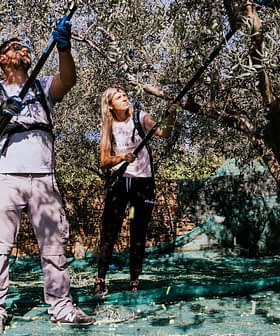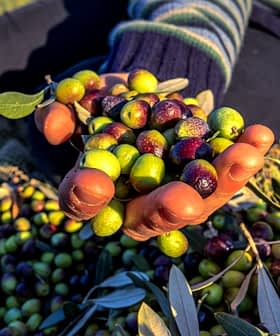The Greek olive oil sector was tested to the limit this year, with the country yielding record-low production of less than 150,000 tons of olive oil due to adverse weather and the olive trees entering an ‘off-year’ in most of the country’s producing regions.
Some of the 56 Greek producers awarded at this year’s World Competition still feel the aftershocks of the challenging harvest.
While we may not have direct control over climate change and its associated warmer conditions, we do have the ability to make changes within our olive groves to mitigate some of its effects.
“This year, we realized that the cultivation of olive trees is no longer viable,” said Apostolos Porsanidis, the owner of Dr. Kavvadia, a returning entrant from the Ionian island of Corfu. “We have to evolve with the challenges climate change brings.”
The producer earned a Silver Award at the 2024 NYIOOC World Olive Oil Competition for a medium monovarietal from the local Lianelia variety.
See Also:The best extra virgin olive oils from Greece“The fruitset was minimal, and the olive fruit fly took a heavy toll on the olives,” Porsanidis said. “We worked hard to produce our olive oil and were delighted to receive a Silver Award this year. The NYIOOC has always been the ideal place to introduce our olive oil to more consumers from around the world.”
Porsanidis’ words were echoed by Vlasios Nisiotis of Rafteli Protouli from Lesbos, who said that the Gold Award the company won at the 2024 NYIOOC guarantees the favorable reception of the company’s brand abroad.
“By submitting our Aegean Gold PGI Lesvos to the competition, we wanted to confirm that we are continuing on the path of quality that we have been following for years,” Nisiotis said.
He noted, however, that climate change has left its mark on the dismal harvest Lesbos experienced this crop year.
“The 2023/24 harvest was one of the worst in the last 20 years,” he said. “Olive cultivation has been hit harder than ever with unprecedented low production volumes due to climate change.”
“The low olive oil yields and the water shortages we regularly face on the island may mean that the time has come for us people to deal with all the damage we have caused to the planet for years,” Nisiotis added.
He noted that the 2024/25 harvest looks promising for now. “We hope for an abundant harvest next year. All the signs are encouraging,” Nisiotis said. “However, there is still a marathon to run until the harvest begins, and anything can happen.”

Nisiotis attributed the historically low harvest on the island of Lesbos to the impacts of climate change. (Photo: Rafteli Protouli)
Agriston, another award-winning producer halfway between Thessaloniki and Kavala, represented northern Greek producers at the World Competition, earning a Silver Award for a medium monovarietal from Chalkidiki olives.
Owner Vangelis Chrysafoudis believes packaged olive oil is the way forward for Greek producers.
“When you sell in bulk, you are at the mercy of the Italians,” he said. “If you sell it packaged, at least you control your game.”
The company exports its branded olive oil to numerous countries, including Sweden, France, Canada, the United States and Germany. However, last year’s meager yield made Chrysafoudis reconsider his strategy.
“Two years ago, we produced 500 tons of oil, and last year, 70,” he said. “The reduced production shattered my dreams. I could have opened many more doors if I had more olive oil. Still, I won’t return to selling at €1.50 per kilogram. I’ll manage.”
Athanasios Molasiotis, a professor of agronomy at the Aristotle University of Thessaloniki, said that higher-than-usual temperatures, which are attributed to climate change, are affecting the Greek olive oil sector in multiple ways.
He added that the high temperatures mainly occur in the summer, exhausting the olive trees.
“Another problem is what central and especially northern Greece is experiencing: the high winter temperatures,” Molasiotis said. Olive trees must receive fairly low temperatures in the winter for strong flowering and fruiting.”
“However, [the reduced fruiting] of the olive trees should not intimidate us,” he added. “Olive trees have ‘on’ and ‘off years,’ showing partial fruiting or even fruitlessness after a year of intense fruiting. On the one hand, there are the climatic factors that affect the fruiting, and on the other hand, the olive trees by nature do not bear fruit consistently.”
Diamantis Pierrakos of Laconiko, an award-winning producer from the Peloponnese peninsula, said that a targeted approach is required to counterbalance the impact of climate change on olive groves and trees.
“While we may not have direct control over climate change and its associated warmer conditions, we do have the ability to make changes within our olive groves to mitigate some of its effects,” he said.
“Our olive groves, situated along the southern coast of the Peloponnese, face challenges such as poor soil nutrients and low water retention due to sandy soil,” Piuerrakos added.
“Our strategy has focused on improving and fortifying the soil conditions to enhance the resilience of our olive trees against the changing climate,” he explained. “By strengthening our soil and trees, we have observed significant improvements and increased resilience in our groves.”
Laconiko earned a quartet of awards (two Gold and two Silver) at this year’s World Competition, bringing its total to 21 awards and establishing its position as the most-awarded Greek producer in the Olive Oil Times World Ranking.
“We carry this year’s awards with pride,” Pierrakos said. “ Since it was our most challenging harvest to date, with a shortage of workers and constant delays during our harvest, the fact that we managed to be recognized once again speaks volumes about our commitment to quality.”









